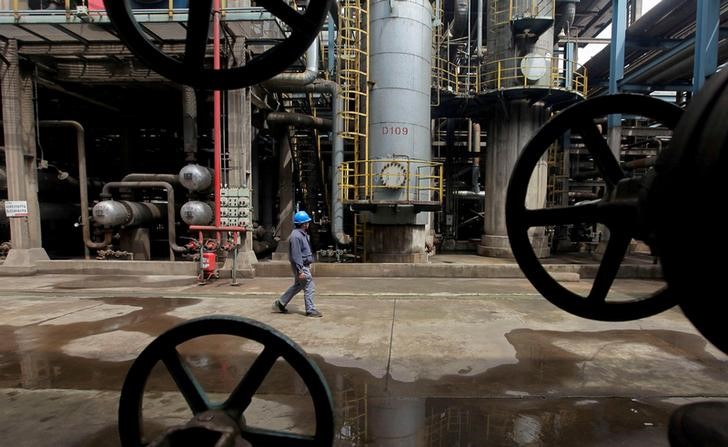By Henning Gloystein
SINGAPORE (Reuters) - Oil prices edged up early on Monday and have risen more than 10 percent since the start of the month as speculation intensifies about potential producer action to support prices in an oversupplied market.
International Brent crude oil futures (LCOc1) were trading at $47.13 per barrel at 0200 London time, up 16 cents from their last settlement, and over 10 percent above the last close in July.
U.S. West Texas Intermediate (WTI) crude futures (CLc1) were at $44.67 a barrel, up 18 cents from their last close.
"Oil posted another ... gain as speculation of potential production freezes by OPEC picked up pace. Saudi Arabia signalled that it is prepared to discuss stabilising the markets at informal OPEC discussions next month," ANZ bank said on Monday.
"This was despite another strong rise in drilling activity in the U.S. ... Baker Hughes data showed the number of rigs operating in the U.S. rose by 15 last week to 396," it added.
After falling sharply from over 1,600 in 2014, before the price rout started, to a low of just 316 in late May, the U.S. oil rig count has steadily risen since then as U.S. producers have adjusted to lower prices.
Meanwhile, an aggressive fight by producers for Asian market share, especially in the Middle East, share is ongoing.
Iran's crude exports to South Korea rose in July to nearly four times the level of a year ago, and 5.9 percent higher than the previous month, after international sanctions were lifted on Tehran's disputed nuclear programme.
South Korea imported 1.10 million tonnes of Iranian crude oil last month (260,910 barrels per day, compared with just 286,374 tonnes imported a year earlier when sanctions were still imposed on Tehran, customs office data showed on Monday.
On the demand side, however, there were worries which traders said were preventing prices from rising further.
The world's three biggest economies, the United States, China and Japan, all published downbeat economic data between Friday and Monday, casting doubt that strong growth will return soon.

"If the world's leading economies are all stuttering, then that usually feeds into emerging markets at some stage. In a situation like that, I wouldn't pin too much hopes on strong fuel consumption growth either," said one oil trader.